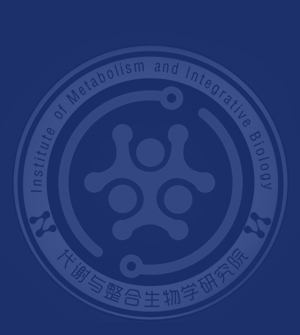


Email: teryttyliyang@fudan.edu.cn
Office Address: Room C7027, Interdisciplinary Building No.2, Fudan University
Lab Homepage:www.terytty-lab.org
Personal Profile
Dr. Terytty Yang Li acquired his PhD degree in State Key Laboratory of Cellular Stress Biology, Xiamen University in 2015. Supervised by Prof. Sheng-Cai Lin, his PhD work revealed the mechanisms of growth factor deprivation-induced autophagy and reprogramming of glucose metabolism (Science, 2012; Physiology, 2013; Molecular Cell, 2016). After PhD graduation, he continued working as postdoc in Prof. Sheng-Cai Lin’s lab and elucidated the physiological functions of acetyltransferase TIP60 in lipid synthesis (Nature Commun, 2018) and ULK1/2 in liver injury (Hepatology, 2018). In 2017, he joined Prof. Johan Auwerx’s lab in École Polytechnique Fédérale Lausanne (EPFL), where he demonstrated that transcriptional coactivator CBP/p300 is an evolutionarily conserved node that promotes longevity in response to mitochondrial stress (Nature Aging, 2021), the essential role of v-ATPase/mTORC1-mediated ATFS-1 translation/ATF4 phosphorylation in mitochondrial UPR activation (J Cell Biol, 2022; BioRxiv, 2022a), and discovered a lysosomal surveillance response (LySR) that extends healthspan (BioRxiv, 2022b). In 2022, he was appointed as an independent PI at Institute of Metabolism and Integrative Biology (IMIB), Fudan University.
Research Interests
By employing state-of-the-art genetic, molecular biology, pharmacological and bioinformatic approaches applied in C. elegans, mice and mammalian cells, our laboratory aims to reveal the systematic and molecular mechanisms of metabolic adaptations in response to stresses and aging, and seek ways to promote organismal health and longevity. Our research majorly focuses on: 1. The cellular and metabolic basis of aging and aging-related diseases. 2. The metabolic adaptations/stress responses in organismal health and longevity. 3. Explore and develop interventions to promote organismal healthspan extension.
Honors and Awards
Ray Wu Prize (2014), Human Frontier Science Program (HFSP) Long-Term Fellowship (2018), Excellent Doctoral Dissertation Award (2016), PhD National Scholarship (2015), JiaGeng Medal (2013) (highest honor as a student in Xiamen University), the 8th China Youth Science & Technology Innovation Award (2013), Baosteel Outstanding Scholarship (2012), Postgraduate National Scholarship (2012), Undergraduate National Scholarship (2009).
Selected Publications
Li TY*#, Wang Q*, Gao AW*, Li X, Mottis A, Shong M, Auwerx J#. Lysosomes mediate the mitochondrial UPR via mTORC1-dependent ATF4 phosphorylation. Cell Discovery, accepted, 2023. (*Co-first authors, #Co-corresponding authors)
Li TY*, Gao AW*, Li X, Li H, Liu YJ, Lalou A, Neelagandan N, Naef F, Schoonjans K, Auwerx J. V-ATPase/TORC1-mediated ATFS-1 translation directs mitochondrial UPR activation in C. elegans. J Cell Biol, 2023. (*Co-first authors)
Li TY*, Gao AW*, Li X, Liu YJ, Arey RN, Morales K, Lalou A, Wang Q, Lima T, Auwerx J. A lysosomal surveillance response (LySR) that reduces proteotoxicity and extends healthspan. BioRxiv, doi: https://doi.org/10.1101/2022.06.13.495962. 2022. (*Co-first authors)
Mottis A, Li TY, Alam GE, Rapin A, Katsyuba E, Liaskos D, D'Amico D, Harris NL, Grier MC, Mouchiroud L, Nelson ML, Auwerx J. Tetracycline-induced mitohormesis mediates disease tolerance against influenza. J Clin Invest 132: e151540. 2022.
Lima T, Li TY, Mottis A, Auwerx J. Pleiotropic effects of mitochondria in aging. Nature Aging 2, 199-213, 2022.
Li TY, Sleiman MB, Li H, Gao AW, Mottis A, Bachmann AM, Alam GE, Li X, Goeminne LJE, Schoonjans K, Auwerx J. The transcriptional coactivator CBP/p300 is an evolutionarily conserved node that promotes longevity in response to mitochondrial stress. Nature Aging 1: 165–178, 2021.
Li TY*, Song L*, Sun Y*, Li J, Yi C, Lam SM, Xu D, Zhou L, Li X, Yang Y, Zhang CS, Xie C, Huang X, Shui G, Lin SY, Reue K, Lin SC. Tip60-mediated lipin 1 acetylation and ER translocation determines triacylglycerol synthesis rate. Nature Communications 9: 1916, 2018. (*Co-first authors)
Sun Y*, Li TY*, Song L*, Zhang C, Li J, Lin ZZ, Lin SC, Lin SY. Liver-specific deficiency of unc-51 like kinase 1 and 2 protects mice from acetaminophen-induced liver injury. Hepatology 67: 2397-2413, 2018 (*Co-first authors)
Li TY, Sun Y, Liang Y, Liu Q, Shi Y, Zhang CS, Zhang C, Song L, Zhang P, Zhang X, Li X, Chen T, Huang HY, He X, Wang Y, Wu YQ, Chen S, Jiang M, Chen C, Xie C, Yang JY, Lin Y, Zhao S, Ye Z, Lin SY, Chiu DT, Lin SC. ULK1/2 Constitute a Bifurcate Node Controlling Glucose Metabolic Fluxes in Addition to Autophagy. Molecular Cell 62: 359-370, 2016.
Lin SY*, Li TY*, Liu Q, Zhang C, Li X, Chen Y, Zhang SM, Lian G, Liu Q, Ruan K, Wang Z, Zhang CS, Chien KY, Wu J, Li Q, Han J, Lin SC. GSK3-TIP60-ULK1 Signaling Pathway Links Growth Factor Deprivation to Autophagy, Science 336: 477-481, 2012. (*Co-first authors)
Li TY, Lin SY, Lin SC. Mechanism and physiological significance of growth factor-related autophagy. Physiology (Bethesda) 28: 423-431, 2013.
Lin SY*, Li TY*, Liu Q, Zhang C, Li X, Chen Y, Zhang SM, Lian G, Liu Q, Ruan K, Wang Z, Zhang CS, Chien KY, Wu J, Li Q, Han J, Lin SC. Protein phosphorylation-acetylation cascade connects growth factor deprivation to autophagy. Autophagy 8: 1385-6, 2012. (*Co-first authors)



 Fudan Email
Fudan Email Fudan Ehall
Fudan Ehall